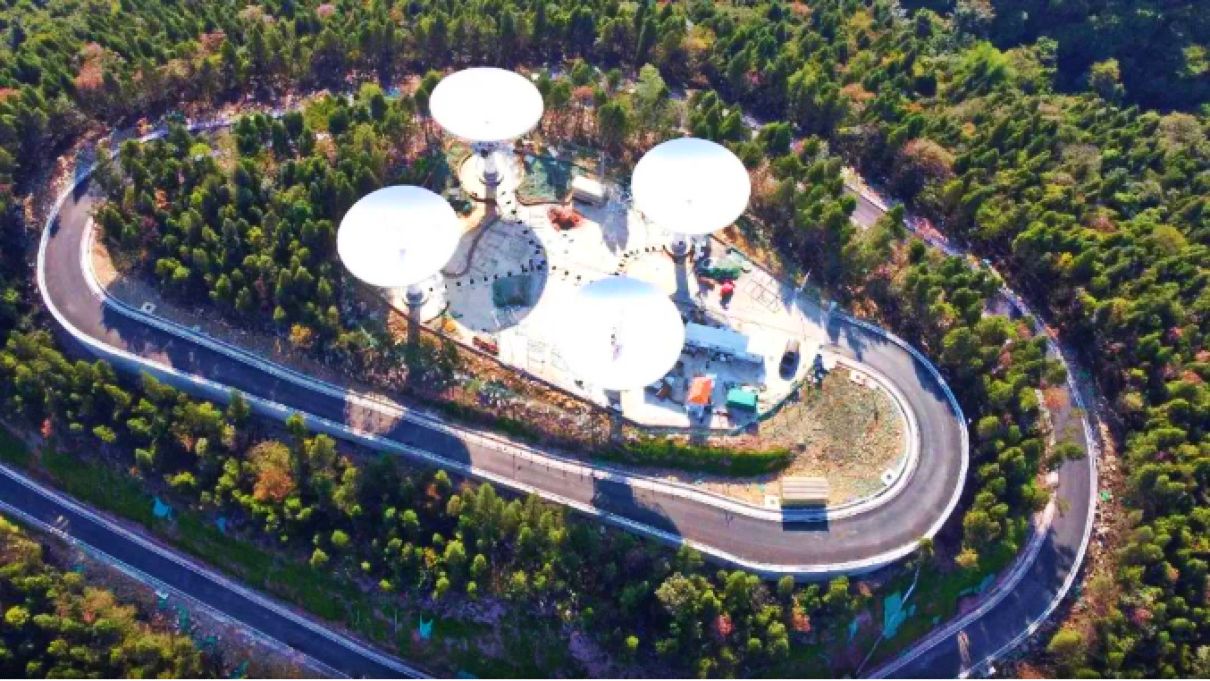Close on the heels of Cuba hosting a Russian nuclear submarine, it has come to light that the Communist country is building a new radar site capable of spying on the United States. Located near Guantanamo Bay naval base, the site is understood to have links with China.
A Washington think tank, the Center for Strategic and International Studies (CSIS), analyzed satellite imagery of the radar site to conclude that the latest upgrade to Cuba’s surveillance capabilities will be a “powerful tool” once operational and will be able to monitor the US military’s air and maritime activity.
“Cuban facilities would also provide the ability to monitor radio traffic and potentially intercept data delivered by US satellites as they pass over highly sensitive military sites across the southern United States. Florida alone is home to the major space-launch complex at Cape Canaveral, the headquarters of both the US Southern Command and Central Command, and multiple submarine and other bases,” said a CSIS report titled “Secret Signals: Decoding China’s Intelligence Activities in Cuba”
The facility has been under construction since 2021 in the east of Santiago de Cuba, near the El Salao neighborhood. The base has a circularly disposed antenna array with a diameter of approximately 130 to 200 meters that could track signals as far as 3,000-8,000 nautical miles (3,452 – 9,206 miles) away, CSIS said.
“Access to such an outpost would provide China with a highly strategic vantage point near Naval Station Guantanamo Bay,” the CSIS said, referring to the key US military base 45 miles (73 km) east of Santiago, Cuba`s second-largest city.
The Cuban Deputy Foreign Minister, the spokespersons of the Chinese Ministry of Foreign Affairs, and the Chinese Embassy in the US have refuted this claim.
F-16s May Suffer Same Fate As Su-27s; Ukraine Fears “Falcons Could Become Sitting Ducks” For Russia
Situated just 90 miles south of Florida, Cuba is strategically located to keep an eye on sensitive communications and activities in the region, including those of the US military. The southeastern seaboard has several military bases, combatant command headquarters, space launch centers, and military testing sites.
Signal intelligence (SIGINT), or eavesdropping on enemy communications, is an important element of spycraft. Intercepting signals transmitted by both civilian and military actors can provide countries with valuable information about their adversaries, competitors, and allies.
Collecting SIGINT is a complex task that requires specialized equipment, namely antennas, optimized for the signal characteristics of their targets. The size, number, orientation, and layout of these antennas determine their capabilities and function.
Cuba’s long history of playing host to foreign espionage operations targeting the US. During the Cold War, the Soviet Union operated its largest overseas intelligence site at the Lourdes Signals Intelligence Complex in Cuba.
Geographical distance affects SIGINT’s efficacy. At extended distances, it can be challenging to separate radio transmissions from surrounding signal activity. Due to the Earth’s curvature and other physical obstructions, radar broadcasts typically require a direct “line of sight” to the target.
Cuba is a great place to gather SIGINT in the area because of its closeness to the Caribbean and the southern US. The base in Cuba will provide Beijing access to a major intelligence window that it would not have been able to have access to from within Chinese territory.
The report points to four bases in Cuba that can help China in signal intelligence gathering. Two of the four sights have seen growth of space-monitoring equipment and considering Cuba lacks its own satellites or space program, the aim is to gather information about the US space program.

China has a network of ground stations to conduct telemetry, tracking, and command of its satellites and spacecraft. But so far, it has lacked ground stations in North America. Even limited access to installations in Cuba would help Beijing in bridging the capability gap.
China might obtain more detailed information about American military tactics by gathering data on things like submarine maneuvers, missile testing, rocket launches, and military drills. Even if the contents of messages and data sent in today’s military communications are heavily encrypted, intelligence may still be gained from knowing the frequency, origin, direction, and tempo of communications traffic.
State Department spokesperson Vedant Patel declined to comment on the report but told a briefing that the US was “closely monitoring” China’s presence in Cuba.
“We know that the PRC (People’s Republic of China) is going to keep trying to enhance its presence in Cuba, and the United States is going to keep working to disrupt it,” Patel said without giving details.
China claims the allegations are “dirty bombs” thrown by the US.
In response to the CSIS report, the Chinese state-owned news organization The Global Times wrote a scathing editorial denying the allegations.
It made a counter allegation against the US for forcibly leasing Guantanamo Bay naval base being proof of “illegal US interference in Cuba”. It contends that the US military had also used Guantánamo Bay as an information intelligence station to monitor Latin American countries.
The editorial further underscores that the US has 750 military bases in more than 80 countries and regions overseas, including dozens in Latin America and the Caribbean area.
“The US continually conducts close-in reconnaissance against China in the South China Sea. In April, the US even deployed the Mid-Range Capability ground-based missile system on the island of Luzon in the Philippines. It is clear who is engaging in double standards and who is threatening other countries and the world,” the editorial read.
- Ritu Sharma has been a journalist for over a decade, writing on defense, foreign affairs, and nuclear technology.
- The author can be reached at ritu.sharma (at) mail.com
- Follow EurAsian Times on Google News





